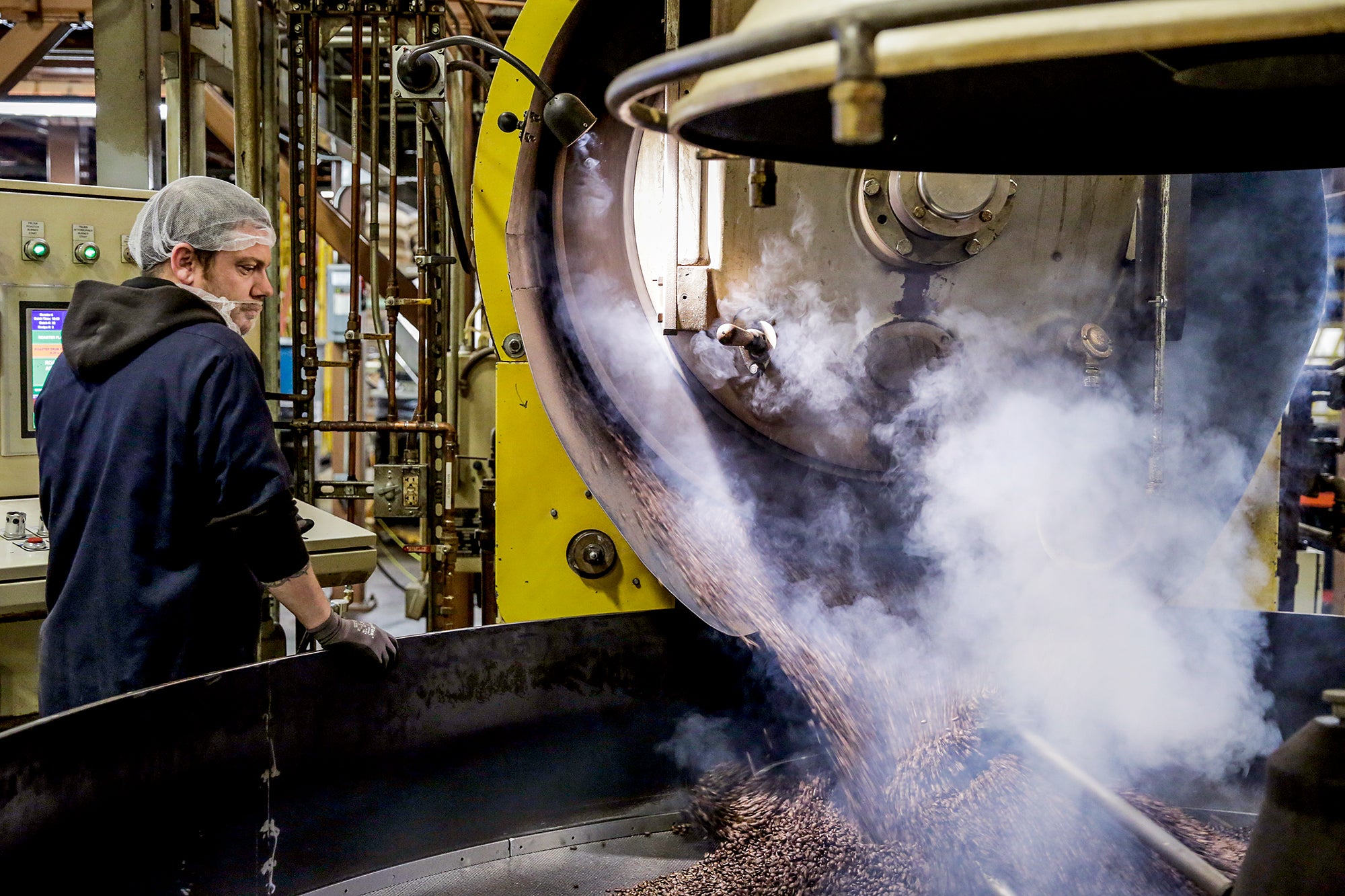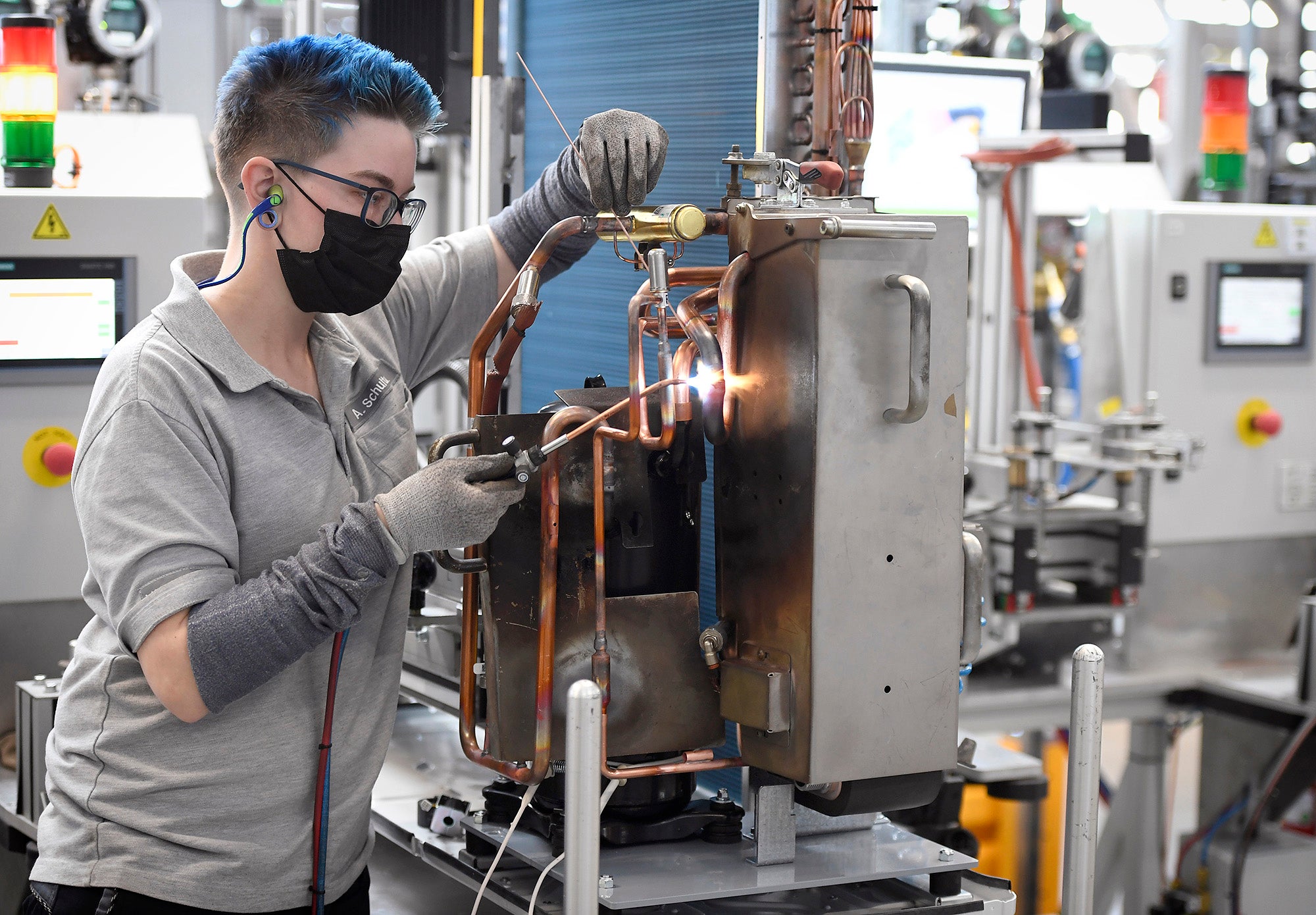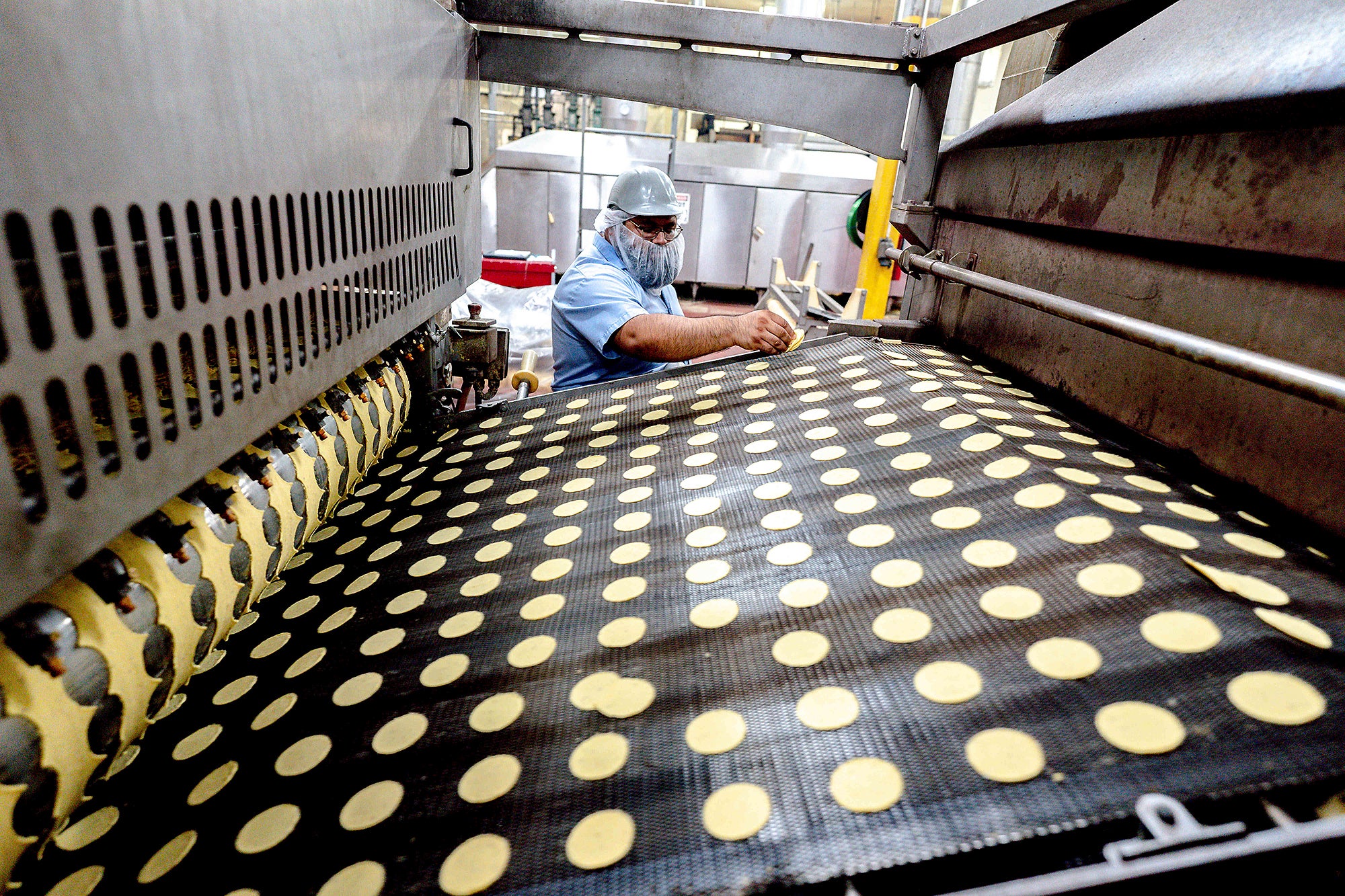Time for the Golden State to Get Serious About Modernizing Manufacturing
As the nation’s largest manufacturing hub, California should lead in establishing a zero-emissions manufacturing sector before the Trump administration drags us into the pits of fossil fuel dependency.

Coffee beans are roasted at Peet’s Roastery in Alameda, California. (Gabrielle Lurie / San Francisco Chronicle via Getty Images)
California’s status as the world’s fourth-largest economy is built on the foundation of a manufacturing sector that employs more than 1.2 million people and makes up 12% of the state’s gross domestic production. The workers at the more than 35,000 firms across the state are the backbone of our economy and make the essential goods that we rely on every day — from paper and medicine, to glass and coffee.
Unfortunately, the magnitude of this sector also makes it a significant source of climate-warming emissions and health-harming pollution, contributing in part to California snatching the top spots for the smoggiest cities in the U.S. for the 25th year in a row. Our state’s industrial sector depends on antiquated and dirty equipment, contributing a whopping 20% of overall greenhouse gas emissions — second only to transportation. Worse, this pollution is concentrated in low-income communities and communities of color that already bear the greatest brunt of environmental harms.
Industrial pollution has been referred to as “hard-to-decarbonize” for far too long. The truth is that nearly half of all emissions from the industrial sector can be eliminated with more efficient electric alternatives that are already commercially available. We can replace fossil-fueled equipment with existing and proven zero-emissions solutions like heat pumps and thermal energy storage, while also creating good jobs, strengthening our electrical grid, and bringing relief to the most polluted communities — and that’s precisely what Assemblymember Garcia’s AB 1280 looks to do.

A technician solders an air heat exchanger, the heart of a heat pump, at a manufacturing facility in Germany. (Roberto Pfeil / picture-alliance / dpa / AP)
AB 1280 would inject sustained funding into the California Energy Commission’s Industrial Decarbonization and Improvement of Grid Operations (INDIGO) program, which supports projects that reduce emissions and improve our grid’s reliability. The bill would also make low-cost loans available from the state’s green bank for industrial decarbonization projects, with requirements for union labor and priority given to projects that improve air quality in environmental justice communities.
The recipients of INDIGO grants were previously able to leverage additional funding from the Department of Energy’s (DOE) Office of Clean Energy Demonstration and Loan Programs Office, programs which, now under the Trump regime, are being gutted and wielded to orchestrate the bidding of the fossil fuel industry. Now, dozens of clean manufacturing projects across the country that had been promised funding by the DOE are under threat of being cut — from glass factories in Modesto and Tracy to ice cream factories in Missouri and Tennessee.
As the administration attempts to drag us deeper into climate and pollution crises by locking us into decades of polluting equipment, California can and must move at double speed to forge ahead with a cleaner future — a future where living next to a tortilla chip factory or coffee roaster doesn’t mean you are more likely to get sick and die early, but instead that you have access to union jobs and clean air.

An employee inspects tortilla chips as they are being processed on a ribbon burner oven at the La Reina Tortilla factory in San Bernardino. (Watchara Phomicinda / MediaNews Group / The Press-Enterprise via Getty Images)
Without investments in facility upgrades, the millions of Californians who work in these facilities and live nearby will unnecessarily suffer from health-harming pollution and unsafe working conditions, even though cleaner technologies are available.
If California is serious about meeting its climate goals, addressing the toxic pollution that is devastating low-income communities and communities of color, and maintaining a competitive manufacturing sector, it must provide support to modernize this sector by passing AB 1280. The bill has garnered bipartisan support, the endorsement of dozens of climate and environmental justice groups, and is now making its way through the Assembly Appropriations Committee. Make your voice count by calling your representative and urging them to help pass AB 1280.
The California Regional Office fights for the rights of all to a healthy environment regardless of where in the state they live; we fight to protect the magnificent natural spaces and wildlife found in California; and we fight to transition California to a zero-emissions future where cars, trucks, buildings, and power plants run on clean energy, not fossil fuels.
